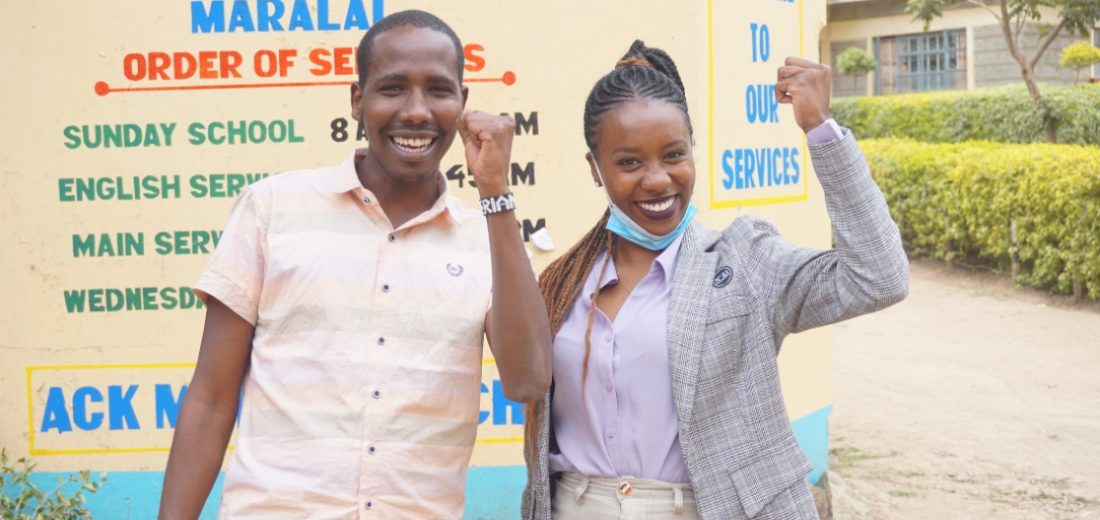
Since 1st January 2022, Eunice Mwaura has been sharing the editorial board of Vice Versa with Marc Broere, where she will primarily be responsible for the Global section. In this introductory interview, the young Kenyan explains why it is high time for a new sound, time to ‘shift the African narrative.’
In the north of Nairobi, 26-year-old Eunice Mwaura sips juice in one of the many coffee bars at The Village Market. Although the name suggests otherwise, this is one of the Kenyan capital’s largest shopping centers – where good money is made owing to its close proximity to the immense UN site and its thousands of employees. The high-security concrete complex is on the outskirts of the city, near Ruaka, a fast-growing township where Mwaura has been living for a year now. ‘That is where I feel most at ease,’ she says, opening a notebook.
‘I am not a city person. Now I have one foot in the city and the other outside.’She knows the quiet life well: she was born and raised in Limuru, a small town that lies in the vast tea fields under the smoke of the capital. She is – ‘thank God’ – almost done with her finance studies at the University of Nairobi, so she can focus on her new job: running Vice Versa Global.
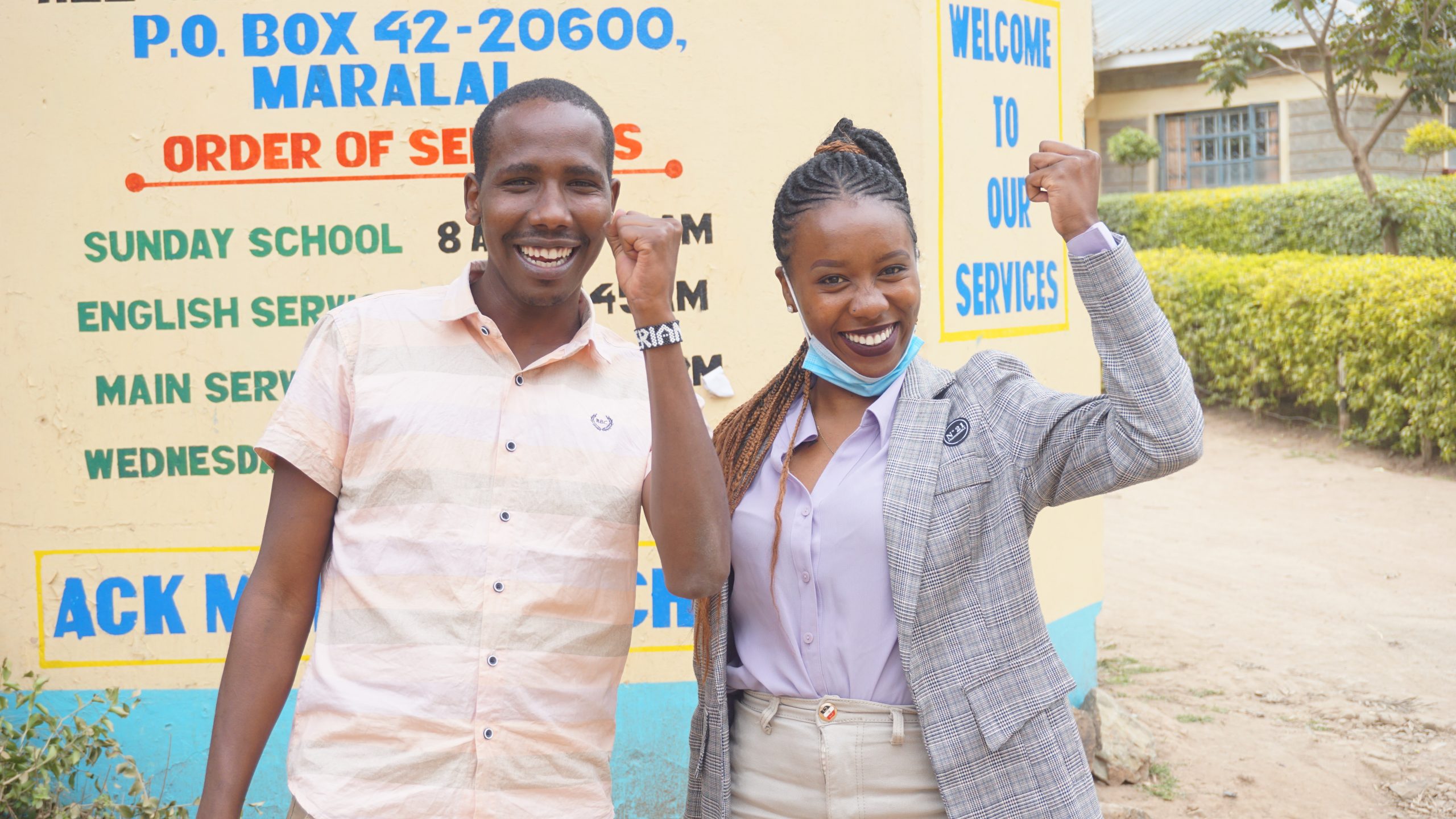
A finance degree and a career in media are seemingly far apart. How did that work out for you?
‘I’ve always had a passion for journalism,’ she says, ‘and I’ve been writing stories since I was a child. After secondary school, I wanted to study communication sciences, but my father thought differently. I am currently in my final year but to be honest it is not my cup of tea. All the same, I have always continued to write.’
How did you end up at Vice Versa?
‘I met Marc (Broere, ed.) through a mutual friend in Nairobi. He told me about his work and I just thought: this is exactly what I want to do. Then I got the chance to work as a translator whenever he’d visit. In those two years, I got to know the profession very well and realized that I could help Marc understand the full context so he could make a more balanced story. When it became clear that I could help him with more than just translation, we started writing pieces together.’
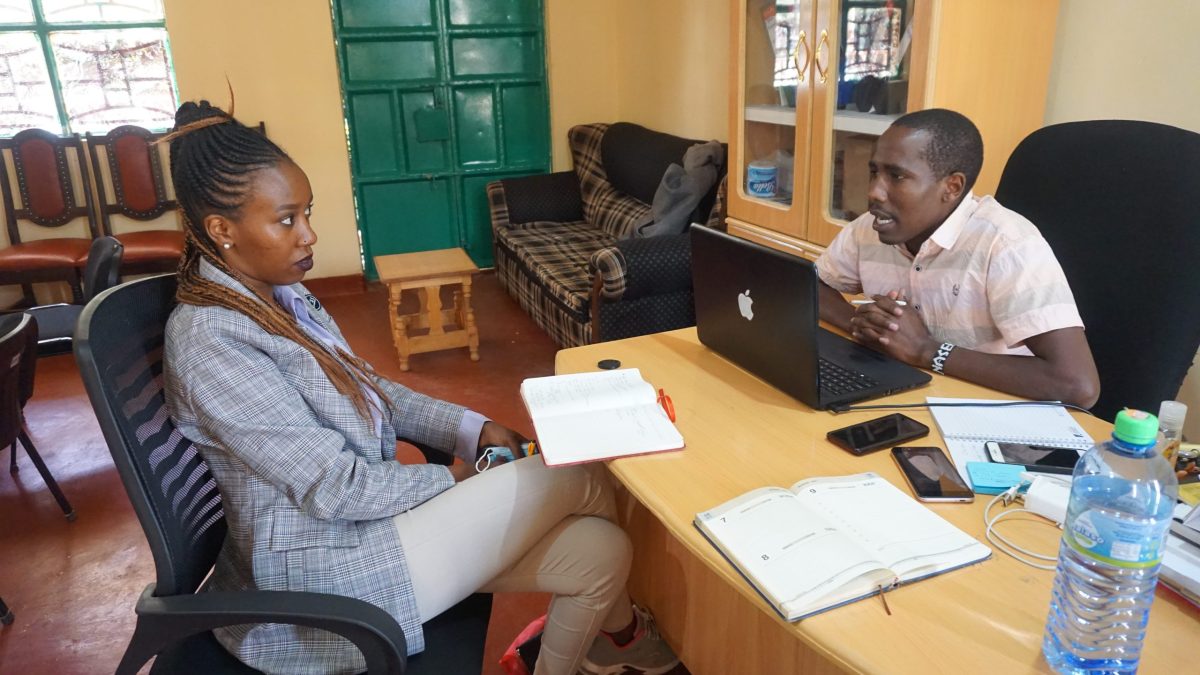
In what way does it contribute that you, as a Kenyan, are contributing to these stories?
‘I think I can get more out of an interview as compared to a foreign journalist. I speak the same language as the interviewee, which creates a sense of familiarity. Moreover, I understand the context of the story, which enables the interviewee to give everything. You need both the perspective of an outsider and an insider. That’s why working with Marc was so complementary: he is a good interviewer with a mountain of experience. When we work on a story, we complement each other – and together we get to the heart of the matter.’
Since 1 January, you have been co-editor-in-chief of Vice Versa. What does that role entail?
‘I am mainly responsible for our new platform, Vice Versa Global, which is run by young African journalists. I’ve been involved for a year; previously as coordinator and recently as editor-in-chief. In the coming period, I will continue to focus on Vice Versa Global.’
What kind of stories do you want to tell with it?
‘Our own stories. The context – which I just mentioned – is very important to us, and it is often lacking in the stories from foreign journalists who come to record our stories. We live on the youngest continent in the world, demographically speaking, yet there are almost no platforms for young people to tell their stories.’
How are young people side-lined?
‘Young people and also women are always seen as spectators. We are not involved in the debate or in decision-making. In the African context specifically, rules and laws are written without us having any say in them. You hardly ever hear the voice of the youth and that is the gap we want to fill with Vice Versa Global. By making use of local talent, we hope to be able to focus on subjects that are rarely covered in the mainstream media. We want to change the perspective on our continent, so that other international media houses also take the stories from Africa seriously. We want to shift the African narrative.’
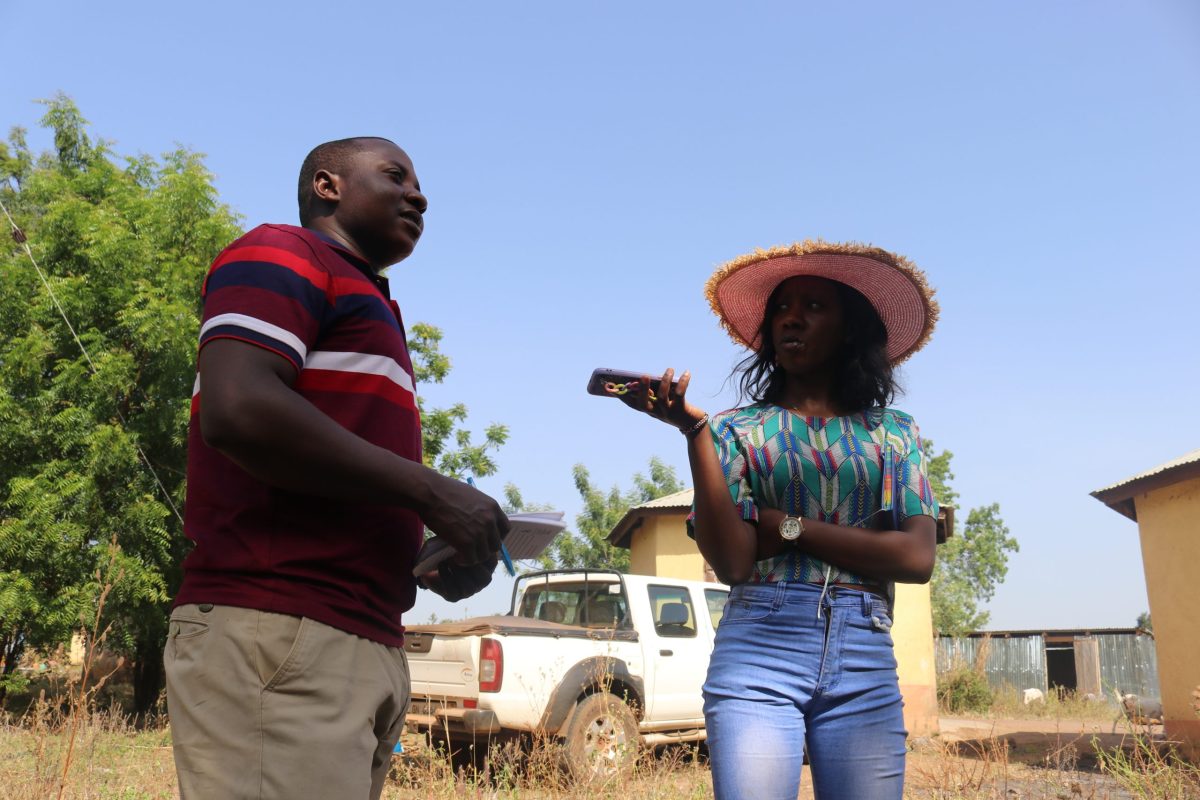
You want to have a say.
‘Exactly! Shift the power. Because it’s all about appropriating the narrative. We work in old, not optimally functioning systems that were built for us by others. We want to build our own system around ourselves.’
Where do these old systems go wrong?
‘Young people have no platform to express themselves. Not only internationally but also in Kenya. If you open the newspaper here, it’s all about old men fighting for power, especially now that we’re in an electioneering year. The news is only about the elite, the rich minority. The vast majority have no voice in the Kenyan press and that lack of representation creates a lack of democracy. The media doesn’t tell the story of how the majority thinks about things, and that’s what we want to change. It’s all about diversity and inclusiveness.’
Where does the mainstream media fall short?
‘When you look at the news, the world seems terrible. When we started out last year in March, I consciously looked for positive contributions. These are stories that often do not make it into the mainstream media. I noticed that there is much more positivity than negativity – there are actually many more positive stories to be told than you would think. Yet you don’t get to see them, because a lot of people are not involved in making news, there are a lot of voices that are not heard. Although we also publish critical pieces, I want to tell stories about the hoi polloi. About people who make the world a better place; people who come up with solutions to challenges or problems. We want to challenge mainstream news media by telling different stories.’
You share the chief editorship with Marc Broere. How does that work?
‘Marc is good at networking and fundraising, I study finance and am good at creating structure. We use our strengths to complement each other. We also have a different approach when it comes to the stories. It is similar to our earlier collaboration when we were working on articles: we both see different aspects that can make a story better.’
The long-standing Vice Versa focuses a good deal on development work, will the same be true of Global?
‘Personally, I’m not that much familiar with the NGO sector, but we have a team of different creators who scrutinize the work of development organizations.
For example, we have a piece coming up by Nicera Wanjiru, a young woman from Kibera, an informal settlement in Nairobi. In this community, of which she is a member, many non-profit organizations are active. In her story, she takes a critical look at all their programs. She poses the question: is our community part of those NGO programs, or is it the other way around? Ultimately, we want to integrate Vice Versa Global with the regular Vice Versa, so that our young reporters can write for it as well.’
What is the role of NGOs when it comes to the image of Africa?
‘Although steps are being taken, NGOs are still stuck in old systems. Their programs often run for so long that they become a large, cumbersome system – a business model in itself. Moreover, they use old ways of telling stories, a certain framework that only illuminates part of reality. They only get funds if they show how bad things are. African communities are often depicted in appalling conditions, with people unable to look after themselves. That is another reason why it is important to offer a counterbalance, by working with young journalists who are in the thick of these communities. They tell the real story. As a platform, we are accountable to the community and to the reader, not to NGOs.’
Who do you want to focus on with Vice Versa Global?
‘Young people. We bring stories that are made by young people and for young people. That is also a challenge so we have to keep reinventing ourselves. We are an online platform and we are active on social media where young people are active. We have to keep up with our target group. We also publish an annual print magazine that collects the best stories from our platform. We want to be where the young people are; for instance, we were recently at a youth conference in Ghana. We will be distributing the magazine in places like that where we will also connect with local young people who can make stories for us. So they are both our audience and creators.’
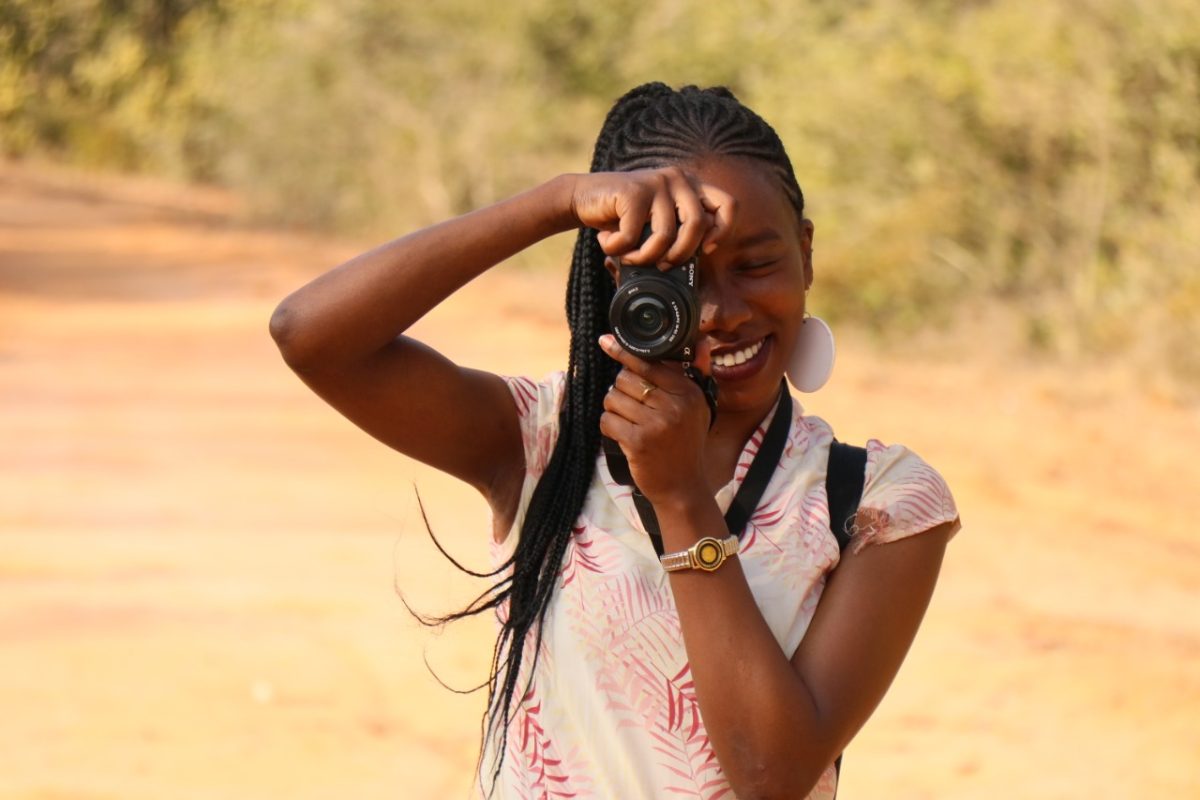
Yet it could be that these young people already know what is going on from their own experience. Shouldn’t you get the old guard on board?
‘We certainly hope that policymakers and politicians will read our stories. Precisely because our content is made by and for young people, and our platform gives a good picture of the issues they are concerned with. We want to inform the old guard: this is what young people like and what they don’t like. When you talk about politics, young people’s voices are not heard. Politics is not a reflection of the country and many politicians don’t care about young people’s opinions. That’s why we also organize debates so that we can be a point of reference for politicians and policymakers. We want to tell them how they can help young people in their country.’
Maybe your father would have let you study differently if he had listened to you better.
Laughs: ‘Many older people don’t know at all what young people care about, because they are not heard. Vice Versa Global is here to change that. By showing them our side of the story, our parents will better understand what drives us. I hope they will listen to our stories.’

Leave a Reply